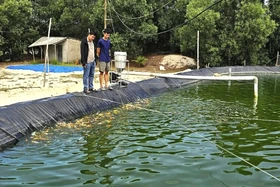4buMIcag4buU4buyIlPDosOiw43hu5jhurfhuqQo4bqlIuG7uOG7mOG7juG6suG6p1MwLuG7lOG6pOG6tSjhu5Qow6LDouG6p+G7uMOi4buUU+G7suG6pSgxMOG7lOG6tyJTMOG7lOG6pTHhu5ThurfhurUxIDHhuqXhu7jhu5Qu4bq14bu44bu4MOG7lC7hurUxw6rhuqUh4buU4bqnMOG6pSgi4buU4bua4buW4buc4buW4buMLyHGoOG7juG7jOG6t+G7lOG7siJTw6LDosON4buY4bq3deG7uFPhu7Thu5jhu47hurLhuqdTMC7hu5ThuqThurUo4buU4bq24bu4MeG6tyLhu7jigJnDouG7lOG7kTEgICjhuqXhuqXhu7jhu7jhu5QhU8Oi4buU4bq14bu44buy4bu4MOG6pSLhu4Hhu5Qow6LDouG6p+G7uOG7tOG7lOG7k+G7uOG7sijDoigxMOG7lOG7rzFO4buU4buaUOG7ouG7oC/hurLhu5Mt4bqmw7Thu6/hu5NN4buUMeG6p+G6pSIoMCgwLuG7lOG6pSHhu7jhu5R04bq14bu44bu4MOG7lHThurUxw6rhuqUh4buUaOG7suG6pSgxMOG7lOG6tiJTMOG7lCwx4bq14buU4bqlIeG7uOG7lOG6t+G6tTHhur0oMOG7suG7uOG7lOG6pzDhuqUoIuG7lOG7muG7luG7nOG7lk7hu4wv4bq34buO4buM4bq34buU4buyIlPDosOiw43hu5jhurfDtDHhu7Thu4Hhu5jhu47hu4woIC7hu5Thu7IiU8Oiw6LDjeG7mCjhu5Hhu7gw4bql4bu44bq14buY4buUw6LhurXhu7LDjeG7mCHhuqXhuqXhurfDoksvL+G7sk7DnVMx4bqz4bqnUzAu4bql4bq1KE7hur0wL+G7tOG7uMOiXeG6pTHhurcvMOG7uMOqw6Iv4bua4buc4buiUS/GoMag4bui4bu04buixqBS4bueUOG7mlDhuqXhu6Dhu5zhu6Dhu6IiUC3huqVTMC4t4bql4bq14bqnMTAuLcagTsOq4bu4w53hurfhu5jhu5RTIuG6pcON4buY4bqy4bqnUzAu4buU4bqk4bq1KOG7lCjDosOi4bqn4bu4w6Lhu5RT4buy4bqlKDEw4buU4bq3IlMw4buU4bqlMeG7lOG6t+G6tTEgMeG6peG7uOG7lC7hurXhu7jhu7gw4buULuG6tTHDquG6pSHhu5Thuqcw4bqlKCLhu5Thu5rhu5bhu5zhu5bhu5jhu5Qv4buO4buML+G6t+G7juG7jOG6t+G7lOG7siJTw6LDosON4buY4bq34buRU+G6t+G6pSgxMOG7mOG7jmjhu5TDolMs4bu44buUUy7hurUo4buy4bqnIuG6peG6p+G6tVMi4buU4bq34bq1MeG7tOG6p+G7suG6pSgxMOG7lCAx4bu04bu4IuG7lFPhuqXhu5ThurwoMCHhu5ThuqThuqfhu5Thu5ExICDhuqcw4bu4TeG7lOG6vCgwIeG7lOG7sSgwIeG7lOG7kyjDouG6peG6tSjhu7LhuqVO4buU4bq2ITHhuqUxS+G7lOG6pOG6pOG7q+G7r+G7jC/hurfhu47hu4zhurfhu5Thu7IiU8Oiw6LDjeG7mOG6t8O0MeG7tOG7geG7mOG7juG6pCEow6Lhu5TDouG6peG6tVPhuqXhu7guKOG7suG7lCgwKOG6pShT4bqlKOG6veG7uOG7lFMoIMOi4buU4bqlMeG7lCgg4bq3IuG7uCDhu7gw4bql4buU4bu44buyMTAxICjhu7Lhu5ThurXhu7jDouG6peG6teG6p+G7suG6peG6p+G6tSgwLuG7lMOd4buB4buU4bu4IMOd4bq1U+G7sigwLuG7lCgwMDHhur1T4bqlKOG6veG7uOG7lC7hurUxw6rhuqUh4buUIDHhu7Thu7giw6JN4buU4bq14bu44bu04bqn4buyKDAu4buULuG6teG7uOG7uDAhMeG6p8Oi4bu44buULlPDouG7lOG7uCAow6LDoigxMMOiTeG7lFMw4bu04buU4bq34bq1MSAx4bqlKDAu4buU4bqlIeG7uOG7lOG7uOG7sjEwMSAo4buyUyLhu5RTMOG7tOG7lOG7uCwsKOG7sijhu7gw4bql4buU4bqn4bqlKCIoelPhuqUoMTDhu5QxLOG7lOG7uDDhu7jhurUu4buB4buUUzDhu7Thu5ThurXhu7jDojHhuqfhurXhu7Lhu7jDok7hu4wv4bq34buO4buM4bq34buU4buyIlPDosOiw43hu5jhurfDtDHhu7Thu4Hhu5jhu47huqQh4bu44buU4bq3IlMw4buUUyLDojHhu5Thu7gg4bq3IVPDoih64bu4w6Lhu5ThuqUh4bu44buUKDDhuqXhu7gu4bq1U+G6pSgxMOG7lDEs4buUw6Lhu7Io4bu4MOG7suG7uE3hu5ThuqXhu7jhu7IhMDEiMS7hu4FN4buU4bu0KC4o4bqlUyLhu5ThuqXhu7jhu7IhMDEiMS7hu4Hhu5RT4bq34bq3Iijhu7JT4bqlKDEww6JN4buUUzDhu7Thu5Thu7QoLijhuqVTIuG7lOG6peG6tVMww6IsMeG6tSBT4bqlKDEw4buU4bqlMeG7lFPhu7IhKOG7uOG6veG7uOG7lOG6pSHhu7jDouG7uOG7lDHDnVvhu7jhu7LhuqUo4bq94bu4w6JO4buUaOG7tOG7tCjhuqUoMTBTIiLhu4FN4buUKOG6peG7lCwx4buy4bqnw6Lhu7jDouG7lDEw4buU4bqlIeG7uOG7lOG7tOG7uOG6veG7uCIx4bq3IOG7uDDhuqXhu5QxLOG7lC7hurXhu7jhu7gw4buUUzDhu7Thu5TDouG6p8Oi4bqlUygwU8OdIuG7uOG7lCgwLOG6tVPDouG6peG6teG6p+G7suG6peG6p+G6teG7uE3hu5QsMcOi4bql4bu44bq1KDAu4buUU+G7lC7hurXhu7jhu7gw4buUIigs4bu4w6LhuqXhu4Ei4bu4TeG7lFMw4bu04buU4bu4MMOi4bqn4bq1KDAu4buUU+G7lCxTKOG6teG7lFMw4bu04buUKDDhu7Ii4bqnw6Io4bq94bu44buULuG6teG7uOG7uDDhu5ThuqXhurVTMMOiKOG6pSgxMOG7lOG6t+G6tTHhu7Lhu7jDosOiTuG7lOG6pCHhu7jhu5Qx4bq94bu44bq1U+G6teG7siEoMC7hu5ThurfhurUoMOG7sijhurci4bu4w6Lhu5Qu4bqnKOG7tCgwLuG7lOG6pSEow6Lhu5ThurciUzDhu5QoMOG7siLhuqfhu7Thu7jhu5Thu7jhurPhuqdTIijhuqXhu4FN4buUKDDhu7Ii4bqnw6IoMTBN4buUUzDhu7Thu5ThuqUh4bu44buU4bu4MCFTMOG7suG7uCDhu7gw4bql4buUMSzhu5ThurXhu7jDoigiKOG7uDDhu7Lhu7jhu5RT4buy4bq1McOiw6Lhu5ThuqUh4bu44buU4bu4MOG6pSjhurXhu7jhu5Thu7jhu7IxMDEg4buBTuG7jC/hurfhu47hu4zhurfhu5Thu7IiU8Oiw6LDjeG7mOG6t8O0MeG7tOG7geG7mOG7juG6pjDhu7Thu7jhurXhu5ThuqUh4bu44buU4bq3IlMwTeG7lOG6pSHhu7jhu5TDouG6t+G7uOG7sigsKOG7suG7lDHDnVvhu7jhu7LhuqUo4bq94bu4w6Lhu5TDneG7geG7lOG6pSHhu7jhu5Thu7gw4bu04buUMSzhu5ThuqUh4bu44buU4bu04bu44buyU+G7tOG7uOG7lCgw4buyIuG6p+G7tOG7uOG7lC7hurXhu7jhu7gwKDAu4buU4bu44buyMTAxICjhu7Lhu5TDouG7uOG7suG6pTHhurXDok3hu5RTKCAoMC7hu5QsMeG6teG7lOG6pSHhu7jhu5Thu7QoLijhuqVTIuG7lOG7uOG7sjEwMSDhu4Hhu5ThuqUx4buU4buyMTDDouG6pSjhuqXhuqfhuqXhu7jhu5TGoOG7nuG7iuG7lDEs4buU4bqlIeG7uOG7lHThurUxw6LDouG7lOG6tOG7uC4oMTBTIuG7lOG7kzEg4bu4w6LhuqUo4buy4buU4bq24bq1MeG7tOG6p+G7suG6peG7lMOTdOG6tOG7k+G6tsOSTuG7lHbhuqUh4bu44bq14buU4bqlU+G6tS7hu7jhuqXDouG7lCgw4bq9MSLhur3hu7jhu5QgUygw4bqlUygwKDAu4buULDHhurXhu7jDouG6peG7lOG7sjHhur3hu7jhurVTLuG7uOG7lFPhuqXhu5Thu6JS4buKTeG7lFPhu7IhKOG7uOG6vSgwLuG7lFMw4buUUzAw4bqnUyLhu5RTLCwx4bq14bu4w6LhuqVT4bqlKDEw4buUU+G6teG7uFPhu5Thu7jhur/hu7Lhu7jhu7jhu7QoMC7hu5RQTeG7luG7luG7luG7lCHhu7jhu7LhuqVT4bq14bu4w6JN4buUU+G6peG6pVMoMCgwLuG7lMOi4bqnw6LhuqVTKDBTw50i4bu44buULDHhurXhu7jDouG6peG7lCBTMFMu4bu4IOG7uDDhuqXhu5Thu7Lhu7jhurXhuqUoLCjhu7JT4bqlKDEw4buULDHhurXhu5Thu5rhu5pN4buW4buW4buW4buUIeG7uOG7suG6pVPhurXhu7jDok3hu5RTMOG7tOG7lOG7uDDDouG6p+G6tSgwLuG7lOG6pSFT4bql4buUU+G6peG7lCLhu7hTw6LhuqXhu5Thu5zhu5bhu4rhu5QxLOG7lCjhurXhurUoLlPhuqXhu7jhu7Thu5ThuqfhurciUzDhu7Thu5Thu7LhurUx4bq34buUU+G6teG7uFPDouG7lOG6p8Oi4bu44buUU+G7tOG6vVMw4buy4bu44bu04buUw6pT4bql4bu44bq1LcOiU+G6vSgwLuG7lCjhurXhurUoLlPhuqUoMTDhu5Qg4bu44bqlITHhu7TDok7hu4wv4bq34buO4buM4bq34buU4buyIlPDosOiw43hu5jhurfDtDHhu7Thu4Hhu5jhu47huqQh4bu44buU4bq3IlMw4buUUyLDojHhu5Thu7gg4bq3IVPDoih64bu4w6Lhu5Qu4bq14bu44bu4MCgwLuG7lCIoLOG7uMOi4bql4buBIuG7uMOi4buUUzDhu7Thu5ThurfhurUxIDHhuqUoMC7hu5TDouG6p8Oi4bqlUygwU8OdIuG7uOG7lOG7sjEww6Lhuqcg4bq34bqlKDEwTeG7lMOqKOG6pSHhu5QuMVMiw6Lhu5TDouG6p+G7siHhu5RTw6Lhu5Thu7gww6LhuqfhurUoMC7hu5RSUeG7iuG7lDEs4buU4bqn4bq1w51TMOG7lMOiMSIo4bu04buUw6pTw6LhuqXhu7jhu5Qow6Lhu5Thu7IxIiLhu7jhu7LhuqXhu7jhu7Thu5RTMOG7tOG7lOG6t+G6tTHhu7Lhu7jDosOi4bu44bu04buU4bqlMeG7lCDhu7jhu7jhuqXhu5TDouG6pVMw4bu0U+G6teG7tMOiTeG7lFMw4bu04buU4bq14bu44bu04bqn4buyKDAu4buU4bqlIeG7uOG7lOG6tVPhuqUoMeG7lDEs4buU4bqn4bq1w51TMOG7lMOiMSIo4bu04buUw6pTw6LhuqXhu7jhu5ThuqXhurXhu7hT4bql4bu44bu04buUw53hu4Hhu5Thu7Qo4bq14bu44buy4bql4buUw53huqfhurUoUyLhu5ThuqUx4buUIuG7uMOiw6Lhu5ThuqUhUzDhu5Thu5zhu5bhu4pO4buML+G6t+G7juG7jOG6t+G7lOG7siJTw6LDosON4buY4bq3w7Qx4bu04buB4buY4buO4bqkMeG7lCxT4buyKCIo4bqlU+G6peG7uOG7lFPhu5Qu4bq14bu44bu4MOG7lOG6peG6tVMww6Io4bqlKDEw4buU4bq34bq1MeG7suG7uMOiw6Lhu5TDnVPDouG7uOG7tOG7lDEw4buU4bq34bq1KDDhu7Io4bq3IuG7uMOi4buUMSzhu5Thu7jhurPhuqdTIijhuqXhu4FN4buUKDDhu7Ii4bqnw6Io4bq94bu4MOG7uMOiw6JN4buUUzDhu7Thu5QoIOG6t+G6tTHhur3hu7jhu7Thu5ThurXhu7jDoigiKOG7uDDhu7Lhu7hN4buU4bqlIeG7uOG7lOG6tyJTMOG7lFMoIMOi4buULDHhurXhu5RT4buUdeG6pyBTMOG7lOG7k+G7uOG6veG7uCIx4bq3IOG7uDDhuqXhu5TDujDhu7Thu7jhur/hu5TDk3Xhu5PDusOS4buUw6LhuqfhurXhurdTw6LDoigwLuG7lOG7lk5Q4bue4buKTeG7lOG6pSHhu7jhu5Thu7IxIOG6tyLhu7jhuqUoMTDhu5QxLOG7lFPhu5ThurfhurUx4bq9KDDhu7IoUyLhu5RTKOG6teG7lOG7uDDhur0o4bq1MTAg4bu4MOG6peG7lOG6s+G6p1MiKOG6peG7geG7lCBTMFMu4bu4IOG7uDDhuqXhu5ThurciUzBN4buUUzDhu7Thu5Thu7gww6LhuqfhurUoMC7hu5RSUuG7iuG7lDEs4buU4bqlIeG7uOG7lOG6p+G6tcOdUzDhu5Thurcx4bq34bqnIlPhuqUoMTDhu5QhU8Oi4buUU+G7suG7suG7uMOiw6Lhu5ThuqUx4buU4buyIuG7uFMw4buUw6pT4bql4bu44bq14buU4bqlIeG6tTHhuqcuIeG7lOG7suG7uDDhuqXhurVTIih64bu44bu04buUw6pT4bql4bu44bq14buUw6Lhuqfhurfhurci4buB4buUw6Lhu4HDouG6peG7uCDDok3hu5TDqiEoIuG7uOG7lFJR4buK4buUMSzhu5ThuqUh4bu44buU4bq14bqn4bq1UyLhu5Thurcx4bq34bqnIlPhuqUoMTDhu5QhU8Oi4buUU+G7suG7suG7uMOiw6Lhu5ThuqUx4buUIeG7gS4o4bu4MCjhu7Lhu5TDqlPhuqXhu7jhurVO4buML+G6t+G7juG7jOG6t+G7lOG7siJTw6LDosON4buY4bq3w7Qx4bu04buB4buY4buO4bqy4bqnUzAu4buU4bqk4bq1KOG7lCFTw6Lhu5ThurfhurUx4bq3McOi4bu44bu04buU4bq9U+G6tSgx4bqnw6Lhu5TDojEi4bqn4bqlKDEww6Lhu5ThuqUx4buUU+G7siEo4bu44bq94bu44buU4bqlIeG7uMOi4bu44buULjFTIsOiTeG7lCgw4buyIuG6p+G7tCgwLuG7lOG6pSHhu7jhu5Thu7jDouG6pVPDnSIow6IhIOG7uDDhuqXhu5RTMOG7tOG7lOG6teG7uCwoMOG7uCDhu7gw4bql4buUMSzhu5QoMMOi4bqlKOG6peG6p+G6pSgxMMOi4buUUzDhu7Thu5ThurcxIijhu7Io4bu4w6JN4buUKCDhurfhurUx4bq9KDAu4buU4bqlIeG7uOG7lOG7uCwsKOG7sijhu7gw4buy4buB4buUMSzhu5TDouG6pVPhuqXhu7jhu5QgUzBTLuG7uCDhu7gw4bql4buUIigwXeG7uOG7tOG7lOG6pTHhu5Qu4bq14bu44bu4MOG7lC7hurUxw6rhuqUhTeG7lCgw4bql4bu4LuG6tVPhuqUoMC7hu5Qu4bq14bu44bu4MOG7lC7hurUxw6rhuqUh4buUKDDhuqUx4buUw6Ix4buyKDEt4bu44buyMTAxICjhu7Lhu5Thu7Thu7jhur3hu7giMeG6tyDhu7gw4bql4buU4bq3IlMww6Lhu5RT4buy4bq1McOiw6Lhu5TDouG7uOG7suG6pTHhurXDouG7lFMw4bu04buU4bq14bu4LigxMMOiTeG7lOG6t+G6tTEgMeG6pSgwLuG7lC7hurXhu7jhu7gw4buUKDDhu7ThuqfDouG6peG6tSjhu7jDok3hu5ThurXhu7jhu7Thuqfhu7IoMC7hu5Qu4bq14bu44bu4MCEx4bqnw6Lhu7jhu5QuU8Oi4buU4bu4ICjDosOiKDEww6JN4buUUzDhu7Thu5Thu7gwIVMw4buyKDAu4buU4bq14bu4w6Ix4bqn4bq14buy4bu44buU4bu4LCwo4buyKOG7uDDhu7Lhu4FO4buU4bqkIeG7uOG7lOG7sijhurXhu7LhuqciU+G6teG7lOG7uOG7sjEwMSDhu4Hhu5QgMeG7tOG7uCLhu5Qow6Lhu5ThurXhu7jhu7IxICDhu7gw4bu04bu44bu0TeG7lFMiMTAu4buUw6oo4bqlIeG7lCDhu7hTw6LhuqfhurXhu7jDouG7lOG6pTHhu5QoIOG6t+G6tTHhur3hu7jhu5ThurXhu7jDoigiKOG7uDDhu7Lhu7jhu5ThuqUx4buU4buyIiggU+G6peG7uOG7lOG7siFTMC7hu7jhu5RTMOG7tOG7lDBT4bql4bqn4bq1UyLhu5Thu7Qow6JTw6LhuqXhu7jhurXDok7hu4wv4bq34buO4buM4bq34buU4buyIlPDosOiw43hu5jhurfDtDHhu7Thu4Hhu5jhu47hu5UsLDHhurXhuqXDouG7lOG6pTHhu5ThurVTKMOi4bu44buUU8OqU+G6teG7uDDhu7jDosOi4buUU8OdMeG6p+G6peG7lOG6pSHhu7jhu5TDoiguMCgsKOG7slMw4buy4bu44buUMSzhu5Qu4bq14bu44bu4MOG7lC7hurUxw6rhuqUh4buUU+G6teG7uOG7lOG7uCDhurchU8OiKHrhu7jhu7RN4buUKDDhur0xIuG6vSgwLuG7lOG6pSHhu7jhu5Thu7Qow6LDouG7uCAoMFPhuqUoMTDhu5QxLOG7lC4xMeG7tOG7lOG6t+G6tVPhu7LhuqUo4buy4bu4w6Lhu5QoMOG7lC7hurXhu7jhu7gw4buU4buyMTDDouG6pyDhurfhuqUoMTDhu5RTMOG7tOG7lFMiKC4wIOG7uDDhuqXhu5TDqijhuqUh4buUMFPhuqXhuqfhurXhu7hO4buUw7owLDHhurUgU+G6pSgxMOG7lOG7slMg4bq3UyguMMOi4buUISguISIoLiHhuqUoMC7hu5QiMcOqLeG7uCAow6LDoigxME3hu5Thu7gw4bq9KOG6tTEwIOG7uDDhuqVTIiLhu4Hhu5Qs4bq1KOG7uDDhu7Qi4buB4buU4bq34bq1MeG7tOG6p+G7suG6pcOi4buUUzDhu7Thu5TDouG7uOG6teG6vSjhu7Lhu7jDouG7lFPhurXhu7jhu5RTIsOiMeG7lOG7uDDhu7Ix4bqn4bq1Uy7hu7jhu7RO4buML+G6t+G7juG7jOG6t+G7lOG7siJTw6LDosON4buY4bq3w7Qx4bu04buB4buY4buO4bqkMeG7lOG7suG6pyLhuqUo4bq9U+G6peG7uOG7lCHhuqcgUzDhu5ThurXhu7jDojHhuqfhurXhu7Lhu7jDouG7lFMw4bu04buU4bq34bq1MSAx4bql4bu44buULuG6teG7uOG7uDDhu5Thu7gg4bq3IjHhu4Eg4bu4MOG6pU3hu5ThuqUh4bu44bq14bu44buUKMOi4buUU+G7lOG7sjEw4buy4bu44bq14bql4bu44bu04buU4bu4LCwx4bq14bql4buU4bqlMeG7lCwxw6LhuqXhu7jhurXhu5ThuqUh4bu44buU4bu04bu44bq94bu4IjHhurcg4bu4MOG6peG7lDEs4buUKDDhu7Qo4bq9KOG7tOG6p1Miw6Lhu5QsMeG6teG7lOG6tTEi4bu4w6Lhu5QoMOG7lOG7uDDhur0o4bq1MTAg4bu4MOG6pVMiIuG7geG7lMOi4bqnw6LhuqVTKDBTw50i4bu44buUMeG7suG7suG6p+G6t1PhuqUoMTDDouG7lFMw4bu04buULuG7uDDhu7jhurVT4bql4bu44buUMeG6t+G6tzHhurXhuqXhuqcwKOG6pSjhu7jDouG7lCwx4bq14buULuG6teG7uOG7uDDhu5RbMcOdw6JO4buU4bqkISjDouG7lCgw4bq9MSLhur3hu7jDouG7lOG7uMOi4bqlU8OdIijDoiEoMC7hu5RTMOG7tOG7lOG7uDAhUzDhu7IoMC7hu5QoMMOi4bqlKOG6peG6p+G6pSgxMMOi4buULDHhu7LhuqfDouG7uOG7tOG7lDEw4buU4bql4bq1UygwKDAu4buUIeG6pyBTMOG7lOG6teG7uMOiMeG6p+G6teG7suG7uMOi4buUUzDhu7Thu5Thu7Thu7jhur3hu7giMeG6tygwLuG7lC7hurXhu7jhu7gw4buUWzHDncOiTeG7lFMiKC4wKDAu4buUw6oo4bqlIeG7lOG7uCDhurciMeG7gSDhu7gw4bql4buULuG6pyjhu7Thu7giKDDhu7jDouG7lFMw4bu04buU4bq3MSIo4buyKOG7uMOiTuG7lOG6pCHhu7jhurXhu7jhu5Qow6Lhu5RTMOG7lOG7uCDhurchU8OiKMOi4buUMTDhu5Thu7IxMOG7tOG6p+G7suG6pSgwLuG7lOG6teG7uMOi4bu4U+G6teG7siFN4buUw6LhuqfhurXhur3hu7jhu4HDok3hu5Thu7RT4bqlU+G7lOG7sjEg4bq3KCJT4bqlKDEwTeG7lFMw4bu04buU4bq34bu44bq1KDHhu7Qo4buy4buULDHhurXhu7jhu7JTw6LhuqXDouG7lOG6pTHhu5RTw6LDouG7uMOiw6Lhu5ThuqUh4bu44buU4bu04bu4IFMw4bu04buULDHhurXhu5RTMOG7tOG7lOG6pSHhu7jhu5Thu7JT4bq3U+G7sijhuqXhu4Hhu5ThuqUx4buUw6Lhuqfhurfhurci4buB4buUIeG6pyBTMOG7lOG6teG7uMOiMeG6p+G6teG7suG7uMOi4buUw6oo4bqlISgw4buULuG6teG7uOG7uDDhu5QoMOG7tOG6p8Oi4bql4bq1KOG7uMOiTuG7jC/hurfhu47hu4zhurfhu5Thu7IiU8Oiw6LDjeG7mOG6t8O0MeG7tOG7geG7mOG7juG6pCHhu7jhu5TDouG6peG6tVPhuqXhu7guKOG7suG7lCwx4buy4bqnw6Lhu5Thu7jhur/huqXhu7gw4bu0w6Lhu5ThuqUx4buU4bqlIeG7uOG7lOG6peG6tVMoMCgwLuG7lFMw4bu04buU4bu4MCFTMOG7suG7uCDhu7gw4bql4buUMSzhu5RdMDHDqiLhu7jhu7Qu4bu44buUUzDhu7Thu5TDol0oIiLDouG7lCgw4buUIFMwUy7hu7gg4bu4MOG6peG7lFMw4bu04buUU+G7tCAoMCjDouG6peG6tVPhuqUoMTDhu5TDqijhuqUhKDDhu5ThuqUh4bu44buU4bq14bu4UyIgw6Lhu5QxLOG7lOG6pSHhu7jhu5Qu4bq14bu44bu4MOG7lOG7uOG7sjEwMSDhu4FN4buULuG6teG7uOG7uDDhu5QgUzDhuqcsU+G7suG6peG6p+G6tSgwLuG7lCgw4bu04bqnw6LhuqXhurXhu4FN4buUUzDhu7Thu5Thu7QoLijhuqVTIuG7lOG7uOG7sjEwMSDhu4FO4buU4bqkISjDouG7lOG7uCwsMeG6teG6peG7lCjDouG7lOG7tCjhurXhu7jhu7LhuqXhu7jhu7Thu5ThuqUxw6pT4bq14bu04buU4bq34bqnw50iKOG7suG7lFPhu7QgKDAow6LhuqXhurVT4bqlKDEw4buUMSwsKOG7sihTIsOiTuG7lOG7rTHhurXhu7gx4bq94bu44bq1TeG7lOG6pSHhu7jhurXhu7jhu5Qow6Lhu5RT4buU4buyMTDhu7Lhu7jhurXhuqXhu7jhu7Thu5QoMCjhuqUoU+G6pSjhur3hu7jhu5ThuqUx4buUKCDhurfhurUx4bq94bu44buU4bqlIeG7uOG7lOG7slPhurdT4buyKOG6peG7geG7lFMw4bu04buUXTAxw6oi4bu44bu0LuG7uOG7lDEs4buU4bql4bu4U+G7siHhu7jhurXDouG7lFMw4bu04buU4bu44bu04bqn4buyU+G6pSgxMOG7lCBTMFMu4bu44bq1w6Lhu5ThurXhu7guU+G6teG7tCgwLuG7lC7hurXhu7jhu7gw4buULuG6tTHDquG6pSFO4buUaDDhu5QoMOG6peG7uC7hurVTIuG7lFPDouG6t+G7uOG7suG6peG7lDEs4buU4bqlISjDouG7lFPhurfhurfhurUxU+G7siHhu5Qow6Lhu5ThuqUh4bu44buUKDDhuqXhu7gu4bq1U+G6pSgxMOG7lDEs4buU4buyMTDhuqXhu7gw4bql4buU4bq14bu4IlPhuqXhu7jhu7Thu5ThuqUx4buULuG6teG7uOG7uDDhu5Qu4bq1McOq4bqlIeG7lCgw4bqlMeG7lOG7uOG7tOG6p+G7slPhuqUoMTBTIuG7lOG6t+G6tTEu4bq1UyDDouG7lFMw4bu04buUU+G7suG6pSjhur0o4bqlKOG7uMOi4buUU+G7suG6tTHDosOi4buUUyIi4buUIuG7uOG6veG7uCLDok7hu4wv4bq34buO4buM4bq34buU4buyIlPDosOiw43hu5jhurfDtDHhu7Thu4Hhu5jhu47DujDhu5QgMcOdKCIoeigwLuG7lCwoMFMw4buyKFMi4buU4bq14bu4w6Ix4bqn4bq14buy4bu4w6Lhu5RTMOG7tOG7lCwxw6LhuqXhu7jhurUoMC7hu5QoMOG6veG7uMOi4bqlIOG7uDDhuqXhu5QsMeG6teG7lC7hurXhu7jhu7gw4buULuG6tTHDquG6pSFN4buU4bqlIeG7uOG6teG7uOG7lCjDouG7lFPhu5Qw4bu44bu44bu04buU4bqlMeG7lOG7sjEg4bq34bq14bu4IeG7uDDDoijhur3hu7gi4buB4buU4bq14bu44bq9KOG7uMOq4buUUzDhu7Thu5Thu7gwIVMw4buy4bu44buUKDDhur3hu7jDouG6pSDhu7gw4bql4buUIOG7uOG7siFTMCjDoiDDouG7lFMw4bu04buU4bq3MSIo4buyKOG7uMOiTuG7lOG6pCEow6Lhu5RTKCDDouG7lOG6pTHhu5Thu7jDouG6pVPDnSIow6Ih4buUU+G7lOG7sjEw4bu04bqn4buyKOG6veG7uOG7lCgw4bq94bu4w6LhuqUg4bu4MOG6peG7lOG7uDDhur0o4bq1MTAg4bu4MOG6peG7lFMw4bu04buUU+G7suG6pSjhur3hu7gi4buB4buULlPhuqUh4bu44bq14buUUyIi4buUMOG7uOG7suG7uMOiw6JT4bq14buB4buU4bq14bu4w6Ix4bqn4bq14buy4bu4w6Lhu5ThuqUx4buUw6Lhuqfhurfhurcx4bq14bql4buU4bqlIeG7uOG7lOG6teG7uFMiKHpT4bqlKDEw4buUMSzhu5Qu4bq14bu44bu4MOG7lC7hurUxw6rhuqUh4buUUzDhu7Thu5ThuqXhurVTMMOiLDHhurUgU+G6pSgxMOG7lC4xUyLDok7hu5TDguG6t+G7uOG7sigsKOG7suG7lCDhu7jhu7IhUzAow6Igw6Lhu5RTMOG7tOG7lOG6tzEiKOG7sijhu7jDouG7lMOiITHhuqci4bu04buUw53hu7jhu5Thu7Thu7jhur3hu7giMeG6t+G7uOG7tOG7lFMw4bu04buUKCDhurci4bu4IOG7uDDhuqXhu7jhu7Thu5ThuqUx4buU4bu4LCwo4buyKOG7uDDhuqUi4buB4buUIDHDnSgiKHrhu7jhu5RTMOG7tOG7lCBTMFMu4bu44buU4bq14bu4w6Ix4bqn4bq14buy4bu4w6Lhu5QsMeG6teG7lMOi4bqnw6LhuqVTKDBTw50i4bu44buU4bu04bu44bq94bu4IjHhurcg4bu4MOG6peG7lFMw4bu04buULuG6teG7uOG7uDDhu5Qu4bq1McOq4bqlIU7hu5ThuqQhKMOi4buUKDDhu7Ii4bqn4bu04bu4w6Lhu5RT4bql4bql4bq1U+G7suG6pSgwLuG7lCIxUzDDok3hu5R2LCwo4buyKFMi4buU4buT4bu44bq94bu4IjHhurcg4bu4MOG6peG7lGjDosOiKMOi4bqlUzDhu7Lhu7jhu5TDk3bhu5Now5JN4buUUzDhu7Thu5ThuqXhu7jhu7IhMCjhu7JTIuG7lFPDosOiKMOi4bqlUzDhu7Lhu7jhu5Qs4bq1MSDhu5Thu7Ix4bqnMOG6peG6tSjhu7jDouG7lFMw4bu04buUKDDhuqXhu7jhurUwU+G6pSgxMFMi4buUMeG6tS5TMCh6U+G6pSgxMMOi4buU4bqlMeG7lOG7uOG6v+G7uOG7suG6p+G6peG7uOG7lC7hurXhu7jhu7gw4buULuG6tTHDquG6pSHhu5TDouG6peG6tVPhuqXhu7guKOG7uMOiTuG7lMO6IOG6t+G6tTHhur0oMC7hu5ThuqUh4bu44buUw53huqfDoigw4bu4w6LDouG7lCgw4bq94bu4w6LhuqUg4bu4MOG6peG7lOG7uDDhur0o4bq1MTAg4bu4MOG6peG7lCjDouG7lOG7uMOiw6Lhu7gw4bqlKFMi4buU4bqlMeG7lFPhuqXhuqXhurVT4buy4bql4buUKDDhur3hu7jDouG6pSDhu7gw4bqlw6Lhu5QoMOG7lC7hurXhu7jhu7gw4buU4bq34bq1MeG7tOG6p+G7suG6pSgxMOG7lFMw4bu04buU4buyKOG6teG7suG6pyJT4bq14buU4bu44buyMTAxIOG7geG7lOG6t+G6tTFb4bu44buy4bqlw6JO4buML+G6t+G7juG7jOG6t+G7lOG7siJTw6LDosON4buY4bq3w7Qx4bu04buB4buY4buO4bqkIeG7uOG7lOG6t+G6tTEgMeG6pSgxMOG7lDEs4buULuG6teG7uOG7uDDhu5Qu4bq1McOq4bqlIeG7lMOiITHhuqci4bu04buUw53hu7jhu5RTMOG7siEx4bq14bu44bu04buUKDDhu5QoMOG6veG7uMOi4bqlIOG7uDDhuqXDouG7lCgw4buUw6Lhu7Io4bu4MOG7suG7uE3hu5ThuqXhu7jhu7IhMDEiMS7hu4FN4buUUzDhu7Thu5QoMDAx4bq9U+G6pSgxME7hu5ThurQoLjHhurUx4bqnw6Lhu5ThuqXhu7jhu7IhMDEiMS7hu4Hhu5RTw6LDouG7uMOiw6Ig4bu4MOG6pcOi4buUMSzhu5QoMOG6veG7uMOi4bqlIOG7uDDhuqXhu5ThurfhurUxW+G7uOG7suG6pcOi4buUU+G6teG7uOG7lOG7suG6teG6p+G7sihTIuG7lOG6pTHhu5ThurfhurXhu7jhur3hu7gw4bql4buUUzDhu7Thu5Thu7giKCAoMFPhuqXhu7jhu5Qx4bqn4bql4bu0U+G6peG7uOG7tOG7lOG6peG7uOG7siEwMSIxLijhu7jDouG7lFMw4bu04buU4bu44bqz4bqnKOG6tyDhu7gw4bql4buUIijDouG6peG7uOG7tOG7lFPDouG7lOG6teG7uMOi4bql4bq1KOG7suG6peG7uOG7tOG7lCwx4bq14buU4bql4bq1UzDDoizhu7jhurXhu5QoMOG6pTHhu5ThuqUh4bu44buU4bq34bq1MeG6vSgw4buy4bu4TuG7lOG6tuG6tSgx4bq1KOG6pSh6KDAu4buU4bq14bu4w6Ix4bqn4bq14buy4bu44buUUyIiMeG7slPhuqUoMTDhu5QsMeG6teG7lOG6pSHhu7jhu5ThurXhu7jDouG7uFPhurXhu7IhTeG7lFPhurfhurciKOG7slPhuqUoMTBN4buUUzDhu7Thu5ThuqXhurVTMMOiLOG7uOG6teG7lDEs4buUISguIeG7lOG6peG7uOG7siEwMSIxLuG7gU3hu5Thu7Ii4bu4UzBN4buUUzDhu7Thu5Thu7gw4bq9KOG6tTEwIOG7uDDhuqVTIiLhu4Hhu5Qs4bq1KOG7uDDhu7Qi4buB4buU4bql4bu44buyITAxIjEu4buB4buUKMOi4buU4bu4w6LDouG7uDDhuqUoUyJO4buU4bqkIeG7uOG7lOG7tOG7uOG6tyIx4buBIOG7uDDhuqXhu5QxLOG7lMOi4buyKOG7uDDhuqUoLCjhu7Lhu5RTMOG7tOG7lOG6peG7uOG7siEwMSIxLijhu7JTIuG7lCgwKOG6pShT4bqlKOG6veG7uMOi4buULDHhu7LhuqfDouG7uOG7tOG7lDEw4buULuG6teG7uOG7uDDhu5Qu4bq1McOq4bqlIeG7lFMw4bu04buUKDAwMeG6vVPhuqUoMTDhu5QoMOG7lFPhu5TDouG6p8Oi4bqlUygwU8OdIuG7uOG7lOG7tCjhurXhu7jhu7LhuqUoMTDhu5Qow6Lhu5ThurdT4bq1UyAx4bqnMOG6pU7hu4wv4bq34buO4buM4bq34buU4buyIlPDosOiw43hu5jhurfDtDHhu7Thu4Hhu5jhu47hu60x4bu04bu4IsOi4buU4bu04bu4IDEww6LhuqXhurVT4bqlKDAu4buU4bqlIeG7uOG7lFPhurfhurciKOG7slPhuqUoMTDhu5QxLOG7lMOi4buyKOG7uDDhu7Lhu7hN4buU4bql4bu44buyITAxIjEu4buBTeG7lCgwMDHhur1T4bqlKDEwTeG7lFMw4bu04buU4bu4LCwo4buyKOG7uDDhuqXhu5Qw4bu4w6pN4buUU+G7tOG6vVMw4buy4bu44bu0TeG7lFMw4bu04buU4buyIuG7uFMw4buU4bql4bu44buyITAxIjEuKOG7uMOi4buUw6IhMeG6pyLhu7Thu5TDneG7uOG7lOG6teG7uOG6tyIo4buyU+G6peG7uOG7tOG7lOG6pTHhu5TDouG7uOG6teG6veG7uOG7lC7hurXhu7jhu7gw4buULuG6tTHDquG6pSFO4buU4bqkIeG7uOG7lCwxw6LhuqXhu7jhurUoMC7hu5QxLOG7lFMw4buUKDAwMeG6vVPhuqUoMTDhu5Thu7jhu7Ixw6Lhu4HDouG6peG7uCDhu5RTMOG7tOG7lOG6pSHhu7jhu5Thu7Thu7jhur3hu7giMeG6tyDhu7gw4bql4buUMSzhu5TDneG6p8OiKDDhu7jDosOi4bu4w6Lhu5RTMOG7tOG7lMOi4bqlU+G6teG6pS3huqfhurfDouG7lCgw4buUU+G7lC7hurXhu7jhu7gw4buU4bu0KOG6teG7uOG7suG6pSgxMOG7lMOiITHhuqci4bu04buUw53hu7jhu5RT4buy4bqlKOG6veG7uCLhu4Hhu5ThurfhurUxIDHhuqXhu7jhu7RO4buU4buTKC4o4bqlUyLhu5ThuqXhurVTMMOiLDHhurUgU+G6pSgxMOG7lOG6t+G6tTEu4bq1UyDDouG7lMOqKOG6pSHhu5ThuqUh4bu44buUMcOdW+G7uOG7suG6pSjhur3hu7jhu5QxLOG7lOG7uMOi4bqlU8OdIijDoiEoMC7hu5RT4buU4bu0KC4o4bqlUyLhu5QuMeG6veG7uOG6tTAg4bu4MOG6pU3hu5Thu7QoLijhuqVTIuG7lOG7uOG7sjEwMSDhu4FN4buUUzDhu7Thu5Thu7QoLijhuqVTIuG7lMOiMeG7sijhu7jhuqXhu4FN4buU4bu4MCFTMOG7sigwLuG7lCJTw50x4bq14buU4bq34bq1MeG7tOG6p+G7suG6pSjhur0o4bql4buBTeG7lFMw4bu04buU4bq34bq1MeG6t+G7uCIiKDAu4buUIDHhuqUo4bq9U+G6pSgxMOG7lCwx4bq14buULuG6teG7uOG7uDDhu5Qu4bq1McOq4bqlIeG7lFMw4bu04buUw6LhuqfDouG6pVMoMFPDnSLhu7jhu5Thu7Thu7jhur3hu7giMeG6tyDhu7gw4bql4buUMOG7uOG7uOG7tOG7lOG6pTHhu5TDneG7uOG7lOG7tOG7uOG6tyIx4buB4bu44bu0TuG7jC/hurfhu47hu4zhurfhu5Thu7IiU8Oiw6LDjeG7mOG6t8O0MeG7tOG7geG7mOG7juG6pCHhu7jhu5Thu7gsLOG7uOG7suG6pSjhur3hu7jhu5QoIOG6tyLhu7gg4bu4MOG6pVPhuqUoMTDhu5QxLOG7lOG6pSHhu7jhu5Thu69T4bqlKDEwUyLhu5Thu5MoLijhuqVTIuG7lOG6pOG6tVMww6IsMeG6tSBT4bqlKDEw4buU4bq24bq1MS7hurVTIOG7lOG6pTHhu5Thu5rhu5bhu5rhu55N4buUw6oo4bqlIeG7lFPhu5Thur0ow6IoMTDhu5ThuqUx4buU4bua4buW4buc4buWTeG7lMOiITHhuqci4bu04buUw53hu7jhu5RT4buULDHhu7JTIuG7lOG6tzEoMOG6pU7hu5Ro4bql4bql4bu4MOG6pSgxMOG7lMOiITHhuqci4bu04buUw53hu7jhu5Thu7Qo4bq14bu44buy4bql4bu44bu04buU4bqlMcOqU+G6teG7tMOi4buU4buyMTDDouG6peG6teG6p+G7suG6pSgwLuG7lCgwLOG6tVPDouG6peG6teG6p+G7suG6peG6p+G6teG7uOG7lCwx4bq14buU4bu0KC4o4bqlUyLhu5ThuqXhurVTMMOiLDHhurUgU+G6pSgxMOG7lOG6pTHhu5TDouG6p+G6t+G6tzHhurXhuqXhu5Qu4bq14bu44bu4MOG7lC7hurUxw6rhuqUhTeG7lCgw4bql4bu4LuG6tVPhuqUoMC7hu5Qu4bq14bu44bu4MOG7lC7hurUxw6rhuqUh4buUKDDhuqUx4buU4buyMSDhurfhurXhu7gh4bu4MMOiKOG6veG7uOG7lCgwLOG6tVPDouG6peG6teG6p+G7suG6peG6p+G6teG7uOG7lCgw4bq94bu4w6LhuqUg4bu4MOG6peG7lOG6t+G6tTEu4bq1UyDDok3hu5RTMOG7tOG7lCgw4buyMeG6teG6tzHhurVT4bqlKDAu4buU4bu0KC4o4bqlUyLhu5ThuqXhu7jhu7IhMDEiMS7hu4Hhu5RTMOG7tOG7lCgwLDHhurUgU+G6pSgxMOG7lOG6peG7uOG7siEwMSIxLuG7geG7lCgw4bqlMeG7lOG6pSHhu7jhu5QgUzBTLuG7uCDhu7gw4bqlTeG7lFPhu7QgKDAow6LhuqXhurVT4bqlKDEwTeG7lFMw4bu04buUMeG6t+G7uOG6tVPhuqUoMTDhu5QxLOG7lC7hurXhu7jhu7gw4buULuG6tTHDquG6pSHhu5ThuqVTw6Jdw6Lhu5RTMOG7tOG7lFPhu7LhuqUo4bq9KOG6pSjhu7jDok7hu4wv4bq34buO4buM4bq34buU4buyIlPDosOiw43hu5jhurfDtDHhu7Thu4Hhu5jhu47DujDhu5ThuqUh4bu44buU4bq14bu4UyIg4buUMSzhu5QoMOG6peG7uOG6tTBT4bqlKDEwUyLhu5QoMOG6peG7uC7hurVT4bqlKDEw4buUUzDhu7Thu5Thu7IxMeG6t+G7uOG6tVPhuqUoMTDhu5QxMOG7lC7hurXhu7jhu7gw4buULuG6tTHDquG6pSFN4buU4bqlIeG7uOG6teG7uOG7lCjDouG7lFPhu5Qw4bu44bu44bu04buULDHhurXhu5ThuqUh4bu44buU4bu4LCzhu7jhu7LhuqUo4bq94bu44buU4bu44bq/4bu44buy4bqn4bqlKDEw4buUMSzhu5TDoiguMOG7uOG7tOG7lOG7sjEx4bq34bu44bq1U+G6pSgxMOG7lOG6t+G6tTEu4bq1UyDDok7hu5ThuqQh4bu44buU4bu04bu44bq94bu4IjHhurcg4bu4MOG6peG7lDEs4buUU+G7lFsxKDDhuqXhu5RT4buy4bqlKDEw4buU4buyMTHhurXhu7QoMFPhuqUoMTDhu5ThurfhurUxLuG6tVMg4buUw53hu7jhuqXDquG7uOG7uDDhu5ThuqUh4bu44buU4buvMeG6teG6pSHhu5Thu5Hhu7gw4bql4bq1UyLhu5ThurfhurUx4bq9KDDhu7Lhu7jDouG7lFMw4bu04buU4bqlIeG7uOG7lOG7keG7uDDhuqXhurVTIuG7lOG7kTFTw6LhuqVN4buUUyIxMC7hu5TDqijhuqUh4buU4bu4MCFTMOG7suG7uOG7tOG7lOG7slPhurdT4buyKOG6peG7geG7lMOd4bqnKCLhu7QoMC5N4buU4bq14bu4w6Lhu7hT4bq14buyIeG7lOG7sjEx4bq14bu0KDBT4bqlKDEwTeG7lFMw4bu04buU4bql4bu44buyITAxIjEu4buB4buU4bql4bq1UzDDoizhu7jhurXhu5QsMeG6teG7lC7hurXhu7jhu7gw4buULuG6tTHDquG6pSFN4buUKMOi4buU4buy4bq14bqn4buyKFMiTuG7lMOC4bu44bu4XSgwLuG7lMOi4bqn4bq34bq3MeG6teG6peG7lCzhurUxIOG7lOG7suG7uDDhuqXhurVTIuG7lCAoMCjDouG6peG6tSjhu7jDouG7lFMw4bu04buUw53hurVTMOG7siHhu7jDouG7lOG6pTHhu5ThurdT4bq14bqlKOG7sijhurdT4bql4bu44buUKDDhu5RT4buy4bqlKOG6vSjhuqUo4bu4w6Lhu5RTMOG7tOG7lCgw4bql4bu44bq1MFPhuqUoMTBTIuG7lOG7sjEx4bq34bu44bq1U+G6pSgxMOG7lOG6t+G6tTEu4bq1UyDDouG7lDEw4buULuG6teG7uOG7uDDhu5Qu4bq1McOq4bqlIeG7lCjDouG7lOG6teG7uOG7sjEgIOG7uDDhu7Thu7jhu7RO4buML+G6t+G7juG7jOG6t+G7lOG7siJTw6LDosON4buY4bq3w7Qx4bu04buB4buY4buO4bqkMeG7lFPhu7Thu7ThurXhu7jDosOi4buU4bu44bqz4bqnUyIo4bql4buB4buUKDDhu5Qu4bq14bu44bu4MOG7lOG6peG6tVMww6IsMeG6tSBT4bqlKDEwTeG7lOG6pVPhurUu4bu44bql4bu44bu04buU4bq34bq1MS7hurVTIMOi4buUUzDhu7Thu5ThurfhurUxW+G7uOG7suG6pcOi4buULDHhurXhu5Thu7Qow6JT4bu04bq9UzDhuqVTLuG7uOG7tOG7lC7hurUx4bqn4bq3w6Lhu5RTMOG7tOG7lOG6pSExw6Lhu7jhu5Qw4bu4LlPhuqUo4bq94bu4IuG7geG7lCgg4bq3U+G7suG6peG7uOG7tOG7lMOd4buB4buU4bu4IOG6tyIx4buBIOG7uDDhuqXhu5Thu7ThuqfhurUoMC7hu5Thu7jhu7IxMDEgKOG7suG7lOG6peG6tVMww6Io4bqlKDEw4buU4bq34bq1MeG7suG7uMOiw6Lhu7jDouG7lCDhuqfDouG6peG7lMOd4bu44buUKCDhurci4bu4IOG7uDDhuqXhu7jhu7RO4buU4bqkISjDouG7lCgw4bq9MSLhur3hu7jDouG7lCgww6LhuqUo4bql4bqn4bqlKDAu4buU4bq34bq14bu4LOG7uOG6teG7uDDhuqUoUyLhu5ThurcxIijhu7Io4bu4w6JN4buUw6Lhuqfhurfhurcx4bq14bqlKDAu4buUIeG6pyBTMOG7lOG6teG7uMOiMeG6p+G6teG7suG7uOG7lOG7tOG7uOG6veG7uCIx4bq3IOG7uDDhuqVN4buU4bq34bq1MeG6vSjhu7QoMC7hu5RT4buy4buy4bu4w6LDouG7lOG6pTHhu5ThurXhu7jDojHhuqfhurXhu7Lhu7jDok3hu5QiU8OdMeG6teG7lFMw4bu04buU4bu4IOG6tyIx4buBIOG7uDDhuqXhu5QoMCwx4bq1IFPhuqUoMTDhu5Thu7IhUzAw4bu4IsOiTeG7lMOi4buyKOG7uDDhuqUoLCjhu7Lhu5RTMOG7tOG7lOG6peG7uOG7siEwMSIxLijhu7JTIuG7lFPhu7Thur1TMOG7suG7uCDhu7gw4bqlw6JN4buUUzDhu7Thu5Qx4bq34bq3MeG6teG6peG6pzAo4bqlKOG7uMOi4buULDHhurXhu5TDneG7uDDhu7gsKOG6pSgwLuG7lCzhurUxIOG7lC7hurXhu7jhu7gw4buULuG6tTHDquG6pSFO4buU4bq2U+G6teG6pSjhu7Io4bq3U+G6pSgxMOG7lCgw4buU4bql4bq1UygwKDAu4buUUzDhu7Thu5Thu7JT4bq3U+G7sijhuqXhu4Etw53huqcoIuG7tCgwLuG7lOG7sjHhuqfhurXDouG7uMOi4buUKMOi4buUXeG7uOG7geG7lCwx4bq14buULuG6tTHhuqfhurfDouG7lFPhu7Thur3hu7jhurXDouG7uCLhu4Hhu5RTLCzhu7jhu7LhuqXhu7jhu7Thu5TDneG7geG7lOG7uCDhurciMeG7gSDhu7gw4bql4buU4bu04bqn4bq1KDAu4buU4bu44buyMTAxICjhu7Lhu5ThuqXhurVTMMOiKOG6pSgxMMOi4buUUzDhu7Thu5Thu7Qow6JT4bu04bq9UzDhuqVTLuG7uOG7tOG7lC7hurUx4bqn4bq3w6Lhu5ThuqUx4buU4bu4MCFTMOG7suG7uOG7lOG6pSHhu7go4bq14buUw6JdKCIiw6Lhu5RTMOG7tOG7lOG7slPhurdTw50oIijhuqUo4bu4w6Lhu5QsMeG6teG7lOG6peG6tVMww6Io4bqlKDEwKDAu4buU4bqlMeG7lC7hurXhu7jhu7gw4buUKDDhu7ThuqfDouG6peG6tSjhu7jDouG7lFMw4bu04buUWzHDncOiTuG7lOG6vFPhurUoMeG6p8Oi4buUMeG6pSHhu7jhurXhu5TDojEi4bqn4bqlKDEww6Lhu5Thu7JTMOG7lMOd4bu44buU4bu44bq/4bq3IjHhurXhu7jhu7Thu5QoMOG7lOG6pSEow6Lhu5ThurXhu7guU+G6teG7tE7hu4wv4bq34buO4buM4bq34buU4buyIlPDosOiw43hu5jhurdo4bqn4bqlITHhurXhu5jhu451Uyjhu5RoMOG7lC3hu5Thu68uMeG7suG7lOG7rVMo4buML+G6t+G7jg==
Hai An - Ngoc Mai

{head}
Other news

QTO - In Quang Tri, clean agricultural stores may not flaunt flashy signs or wide storefronts, but they are quietly becoming trusted places where consumers...

QTO - In a quiet village in central Vietnam, Le Minh Duc, 26, has turned his passion for ornamental fish into a promising startup, the first Koi breeding...

